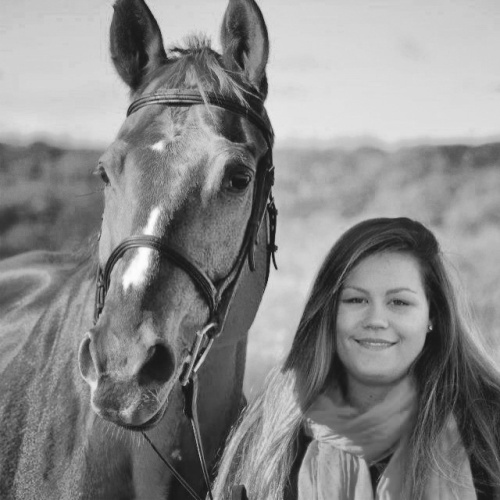Contributed by Hayley Barrett
 “I never considered not riding. I needed to find a way to be with horses until I could ride again,” says 18-year-old Isabelle O’Connor. Born into a horse-loving family, Isabelle started in the saddle at age six. This fall, she begins her freshman year at Dickinson College in Pennsylvania and will compete with the school’s equestrian team.
“I never considered not riding. I needed to find a way to be with horses until I could ride again,” says 18-year-old Isabelle O’Connor. Born into a horse-loving family, Isabelle started in the saddle at age six. This fall, she begins her freshman year at Dickinson College in Pennsylvania and will compete with the school’s equestrian team.
She has come a long way since her accident.
“My old horse was getting small for me, so I was trying a new one. We were working in the outdoor arena. Everything was fine until the horse tripped. I slammed into the ground head-first and had to be airlifted to Boston. I sustained a traumatic brain injury.”
Isabelle’s helmet may have saved her life. It certainly prevented a great deal of permanent injury. “I don’t have that helmet anymore. I returned it to the company because they offer free replacements for helmets damaged in falls. It looked fine on the outside. There was just a dusty mark where I hit.”
After a traumatic brain injury (TBI), it is critical to prevent additional blows to the head. For Isabelle, that meant huge changes. No longer could she ride, or even work around, the spirited horses she was used to. “I was dizzy and confused, no longer the busy honors student adept at balancing schoolwork with the barn jobs that paid for my competitive riding. I asked if I could keep volunteering at Windrush, where the horses are mellow. My neurologist agreed.”
Isabelle had volunteered at Windrush for two years before her injury. After her fall, her time at Windrush benefited her in new ways. The gentle work of sidewalking improved her strength and balance. “Over the following year, as I walked alongside the horses, I slowly healed. Strangely, the accident made me a more confident rider. I know now that everyone is fragile. My students, many of whom face life-long challenges, inspire me with their perseverance and upbeat attitudes. I volunteer at Windrush to teach them about horses. They teach me about overcoming obstacles.”